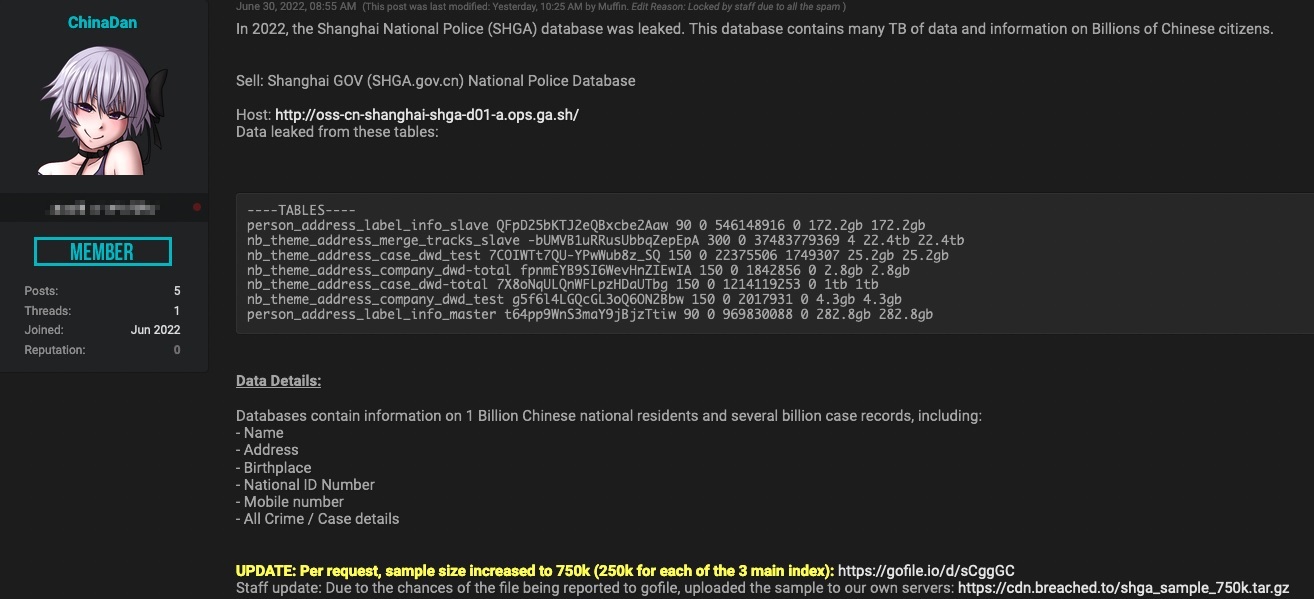
A hacker claims to have stolen the personal data of one billion Chinese citizens from the Shanghai National Police (SHGA) and is selling it for 10 bitcoins.” This database contains many TB of data and information on billions of Chinese citizens.”
23 terabytes of data on 1 billion Chinese citizens is being sold for 10 bitcoins
Anonymous hackers claim to have stolen about 23 terabytes of data on 1 billion Chinese citizens from the Shanghai police database. Experts say that if true, this would be one of the largest data breaches in history.
This data is being offered for sale for 10 bitcoins. At the time of this writing, this amount is equivalent to approximately $197,806.
An anonymous user on a hacker forum with the handle “Chinadan” put the data up for sale on Thursday. The user claimed that the information was leaked from the Shanghai National Police (SHGA) database. The post details, “This database contains a lot of TB data and information about billions of Chinese citizens.”
The leaked data includes names, addresses, places of birth, national ID numbers, cell phone numbers, as well as details of crimes and incidents.

This user shared a sample of 750,000 records so interested buyers can verify that the sales data is not fake.
On Monday, Binance CEO Zhao Changpeng (CZ) tweeted.
Our threat intelligence detected 1 billion resident records, including names, addresses, national IDs, cell phones, police and medical records from one Asian country for sale on the dark web.
“It is likely due to a bug in the deployment of Elastic Search by government agencies … It is important that all platforms strengthen security measures in this area,” he continued, “Binance has already potentially enhanced verification for affected users,” he added.
The Binance chief further explained on Monday.” Apparently, the exploit happened because a gov developer wrote a technical blog on CSDN (China Software Developers Network) and accidentally included credentials and data of 1 billion records of civilians.”
Image credits: Shutterstock, Pixabay, Wiki Commons, lev radin















